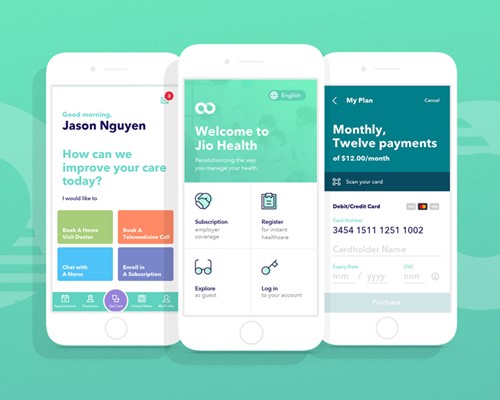Emerging Dawn: The Future Of Software Engineering In 2025
Software development has evolved significantly with rapid advancements in technology. We can agree that today, software controls many aspects of our lives, from mobile apps to essential technologies like artificial intelligence. It spans across diverse sectors such as education, health, and finance, shaping how we live and work.
This article explores the future of software engineering in 2025, examining emerging trends, technologies, and methodologies that will revolutionize how we create and deploy software applications. As we delve into these future possibilities, it’s evident that the evolution of software development will hinge on innovation, collaboration, or even radical shifts, as the industry continues to demand improvements.
What Is Software Engineering?
Software engineering is the disciplined craft of designing computer programs that address real-world challenges. Think of a software engineer as an architect; however, instead of buildings, they design applications that simplify and enhance our lives—such as navigation apps that help us steer clear of traffic. The significance of their work is profound, as it underpins the technology we rely on daily, from smartphones to medical devices.
This multifaceted field includes numerous specializations. Web engineering, for instance, focuses on the development of web services, while security engineering is dedicated to creating systems that safeguard our data. Within these domains, roles vary widely, from coding and development to project management. Each role is integral to fostering the innovative digital landscape that defines our modern world.
Is There a Future for Software Development?
The increasing global demands in the technological sphere make the future of the software industry exceptionally promising. According to Opportunity Desk (2019), the demand for software engineers surged by approximately 17% across all industries in 2025 alone. Today, every sector seeks streamlined operations and enhanced efficiency, achievable only through tailor-made applications suited to each industry’s unique needs. This underscores the enduring relevance of specialized knowledge in this field.
While automation and AI raise concerns about job displacement, these technologies are actually generating a wealth of new opportunities. As industries become increasingly software-dependent, the need for skilled developers to build, maintain, and innovate these systems intensifies. Automation handles repetitive tasks, enabling software engineers to concentrate on complex problem-solving and creative solutions. This is evident in the increased hiring across sectors for professionals proficient in leveraging modern technologies like cloud services and AI.

Software development will continue to advance, yet the demand for experts in this field will persist. This means there’s always a chance to carve out your own slice of the pie
Technological advancements are thus not a threat but a catalyst for the growth of software engineering. They drive the evolution of the field, ensuring it remains dynamic and promising. With agile methodologies and remote work now the norm, the landscape of software development is more exciting than ever, offering a platform for tomorrow’s visionaries to shape the digital future. Far from being merely a career, software engineering is poised to remain a cornerstone of our digital world, continuously expanding its horizons.
Demand For Skilled Software Engineers In The Future
Here are essential skills that technology engineers need to stay ahead, which customers can also consider when choosing a software development company.
Technical skills
The future is exceptionally promising for software engineers equipped with a robust technical skill set. As industries increasingly adopt digital solutions, the demand for developers proficient in programming languages such as Java, Python, Rust, and Go is soaring. Expertise in software architecture, which involves structuring complex systems and integrating diverse components, is equally critical.
Furthermore, proficiency in Agile and DevOps methodologies is becoming indispensable, streamlining the development process for greater efficiency and effectiveness. Given the relentless pace of technological advancement, these skills are not merely desirable but essential, ensuring that skilled software engineers will remain in high demand well beyond 2025.
Continuous learning
Continuous learning is not merely beneficial; it is essential. The fast-paced industry ensures that today’s innovations become tomorrow’s history. For software engineers, this necessitates a commitment to lifelong learning to keep their skills and knowledge at the forefront. Staying updated with new trends, technologies, and professional development opportunities is crucial. Proactivity in learning and applying new skills to real-world challenges keeps engineers relevant and in demand. As the digital landscape evolves, those who adapt through continuous learning will lead the way, shaping the future of technology.

Jio Health – Telemedicine App Built by Savvycom
Our team can help you with the development of your application. Contact us to get a free initial consultation regarding your project and its estimation in terms of cost, timeline, and needed technical talent.
Top 10 Trends In the Future of Software Engineering

Keeping abreast of future software development trends will ensure you stay ahead of the curve and avoid falling behind
Of course, keeping up with software development trends is equally important. Here are the top 10 trends in the future of software engineering in 2025 that you can refer to in order to choose the technology and software development services that fit your needs.
Cloud Services
Cloud services are revolutionizing software engineering by providing scalable, efficient, and cost-effective solutions for data management. As organizations prioritize their core objectives, cloud computing simplifies access and backup processes, becoming an essential tool. Its growing significance in software engineering education highlights its expected expansion.
This trend is creating diverse career opportunities in the cloud domain, including roles such as architects, security experts, and administrators. The shift towards cloud services is a defining trend in software engineering, shaping a future where agility, innovation, and strategic data handling are paramount.
Artificial intelligence (AI) and Machine learning (ML)
AI and ML are bound to impact every aspect of software engineering. They have utility in all steps of creating software; thus, they are essential topics for software engineers to learn and build a career around. AI encompasses machines designed to emulate human intelligence, engaging in tasks ranging from data analysis to decision-making.
ML, a specialized branch of AI, empowers systems to learn from data, adapt, and enhance their performance over time. Within software engineering, these technologies are indispensable for automating intricate processes, optimizing performance, and customizing user experiences. They enable engineers to craft sophisticated, efficient software solutions tailored to specific requirements and budgets. As AI and ML continue to advance, their integration into software development is not merely advantageous but essential, positioning adept software engineers at the vanguard of technological innovation.
Low/No-Code development
The rise of low/no-code development is transforming the software industry, democratizing the creation process. Platforms such as Squarespace and Cloudinary’s MediaFlows enable individuals without coding expertise to build and automate software, significantly reducing complexity, cost, and time-to-market.
According to a Statista survey, 60% of organizations have seen low-code solutions boost revenue and facilitate the phasing out of outdated systems. The benefits are numerous: lowering IT costs, speeding up development, enhancing adaptability, and fostering innovation.
Furthermore, the emergence of languages like Rust underscores the industry’s shift towards safer and more reliable code. Low/no-code development isn’t just a passing trend; it represents a transformative shift that makes software engineering more accessible and efficient.
Blockchain technology
Blockchain technology is a digital ledger system that is immutable and decentralized, revolutionizing not just finance but multiple sectors. It operates as a series of unalterable records linked via cryptography, ensuring secure and transparent transactions. In software development, the rise of blockchain necessitates specialized tools and techniques for crafting blockchain-centric applications. This innovation is creating new roles within software engineering, with a growing demand for experts who can develop and manage blockchain platforms.
The technology’s impact is profound, offering robust solutions for secure data handling and smart contracts. This makes blockchain a pivotal trend for software engineers to watch and embrace.
Cybersecurity
Cybersecurity has emerged as a cornerstone of software engineering. As software becomes ubiquitous in personal and corporate life, safeguarding data against cyber threats is paramount. Clients expect robust security in applications to protect sensitive information.
The role of cybersecurity in software engineering is critical; it fortifies the defenses of applications, ensuring they serve as reliable fortresses for data. This focus on security is not merely a feature but a fundamental expectation, integral to the trust and functionality of software systems.
As threats evolve, the importance of cybersecurity in software engineering grows, making it an indispensable aspect of the discipline.
Augmented reality (AR) & Virtual reality (VR)
Augmented Reality (AR) and Virtual Reality (VR) are revolutionizing software solutions, marking a new era for industries worldwide. As key elements of future software engineering, expertise in AR/VR technologies enables engineers to create immersive experiences that businesses increasingly desire.
The demand for this specialized knowledge is rising, with companies seeking experts to drive innovation in virtual environments. Consequently, software engineers must be skilled in managing large datasets and proficient in programming to develop advanced AR/VR applications that integrate seamlessly with web and cloud technologies.
Self-Healing technology
Self-healing technology marks a significant shift in software maintenance, set to transform how we manage and repair digital systems. Leveraging machine learning, this innovative approach allows programs to automatically detect and fix issues, minimizing the need for human intervention.
According to Gartner, such automation could redirect 30% of IT support efforts to DevOps by 2024. This shift not only frees up valuable time for development teams to concentrate on higher-priority projects but also enhances service level agreements by better meeting client expectations. Ultimately, self-healing software aims to reduce the strain on IT resources by automating the resolution of minor bugs, fostering a more efficient and intelligent infrastructure.
No matter the tech trends that come and go, it’s how organizations leverage them that matters. Learn more about how Savvycom helps you optimize development and performance today.
Advanced algorithms driving automation
In the pursuit of operational efficiency, advanced algorithms are essential to software automation. They form the foundation of programming languages and drive the innovative software that companies aim to develop. These sophisticated algorithms, once implemented, can automate an organization’s processes, highlighting a key trend in software engineering. Consequently, software engineers are increasingly dedicated to creating and refining these algorithms to streamline workflows, underscoring their critical role in the automation landscape.
Developing new programming languages

The race in technology never halts, and this includes the continual development of new programming languages.
Technology has come a long way, and now software engineers aren’t just working on traditional computers—they’re also developing for all sorts of devices, from smartphones to car audio systems. This shift means we need new programming languages that fit the unique needs of these different environments.
Languages like Dart, TypeScript, and Swift are popping up to fill this gap, offering more specialized, efficient, and secure ways to build apps. For software engineers, getting the hang of these languages is becoming a must. It helps them stay on top of industry trends and keep up with the ever-changing world of software development.
Continuous integration & Continuous deployment
Continuous Integration (CI) and Continuous Deployment (CD) are revolutionizing software development, making the leap from code creation to deployment smoother than ever.
CI kicks things off by automatically testing and merging code changes, cutting down on those pesky integration issues. CD takes the baton and automates the release process, ensuring new features and fixes get to users quickly and reliably.
Together, these practices encourage a steady stream of small, manageable updates, leading to better-quality applications and quicker responses to market needs. For software engineers, getting a handle on CI and CD isn’t just a trend—it’s becoming a vital part of staying relevant and effective in the ever-evolving tech landscape.
Recap
In short, the 2025 software engineering roadmap serves as a guide to the industry’s future. It highlights current trends and the essential skills needed to navigate them.
Emerging technologies, innovative trends, and evolving methodologies are all shaping the future of software development. The landscape of future software technology offers huge potential for transformation and progress, including AI-powered development and integration with quantum computing. By embracing these trends, developers can innovate and boost productivity with solutions that address society’s needs. At Savvycom, we’re committed to upholding established standards and guidelines in everything we do, whether it’s technology related to finance, healthcare, education, or more. If our approach resonates with you, explore our portfolio.


